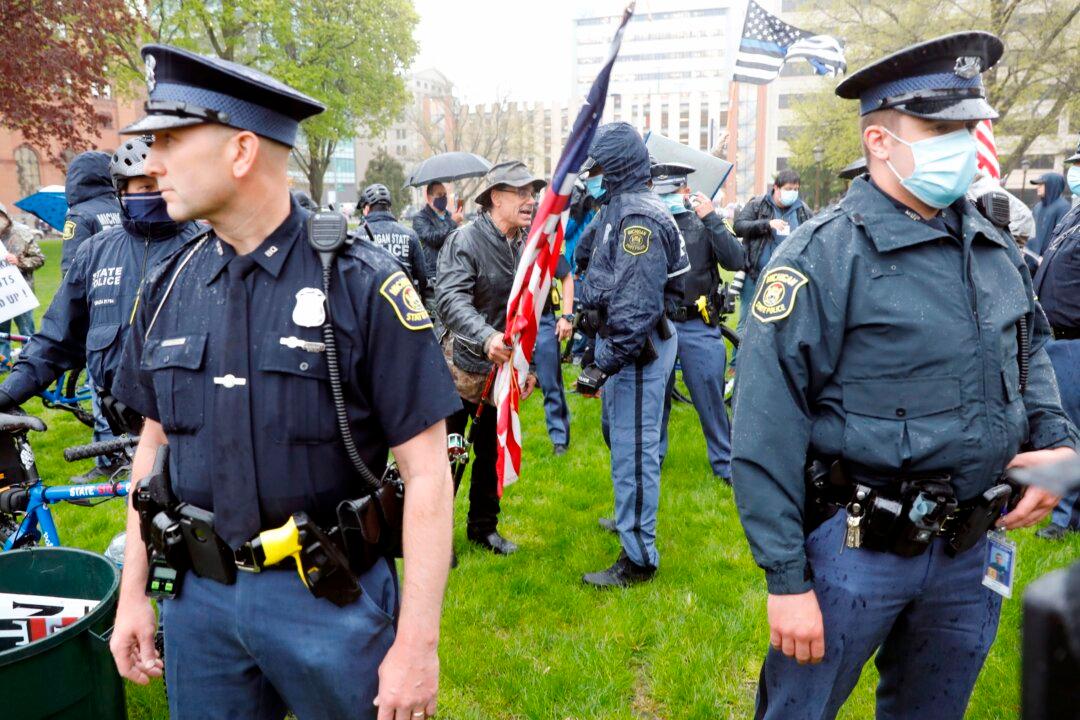Police departments nationwide are grappling with changes the CCP virus has wrought on the way they operate, even as law enforcement agencies report major decreases in crime due to stay-at-home orders.
Officers are facing more risks to their lives as they attend to calls, investigate, and patrol in the streets. They are also required to change their ways of policing and investigating as social distancing and masks changed everything about the way they operate.





